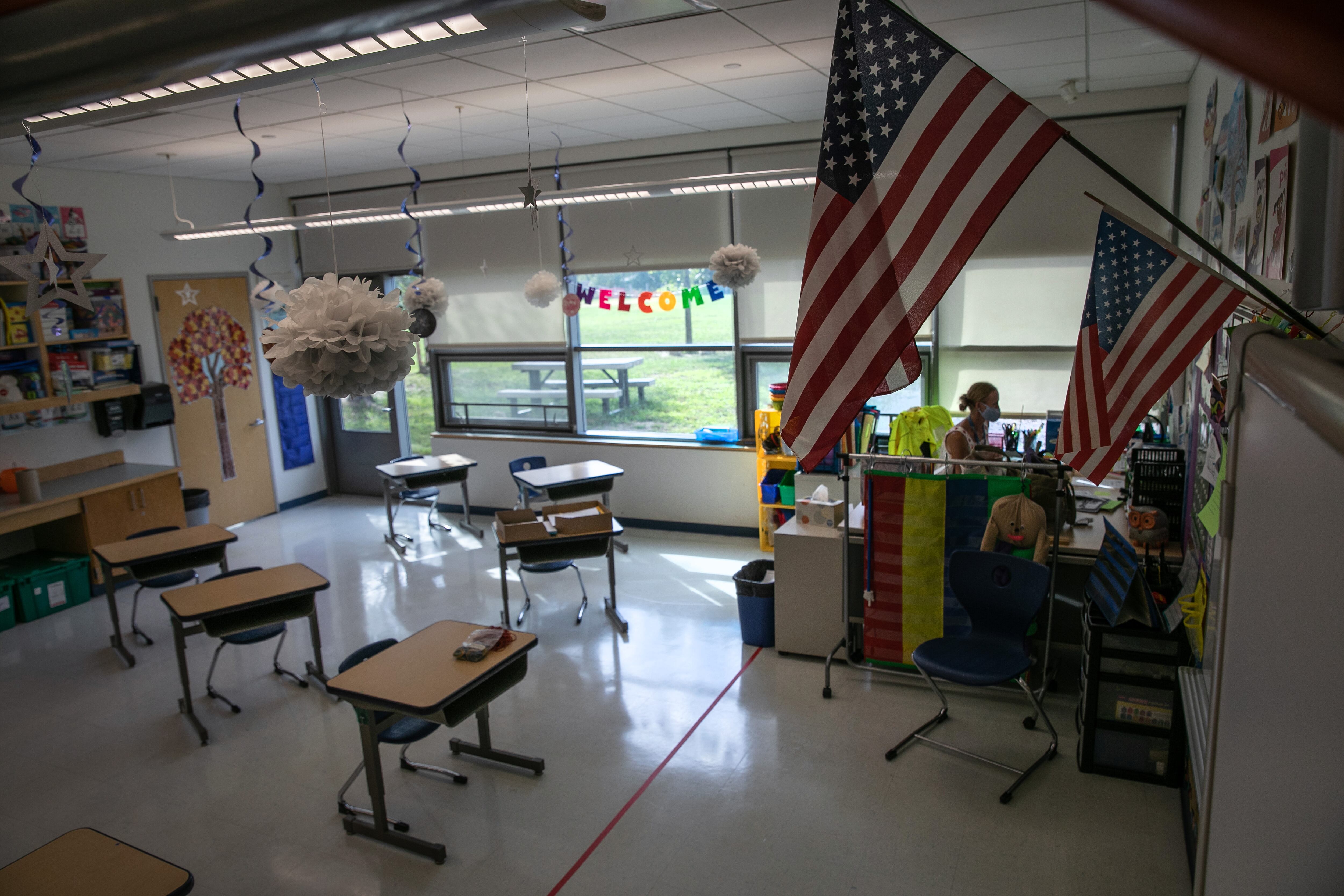A coalition of teachers unions and professional associations in Illinois are urging school districts to suspend teacher evaluations during the coronavirus pandemic.
On Monday, the Illinois Federation of Teachers, the Illinois Educators Association, the Illinois Association of School Administrators, and the Illinois Principals Association teamed together to release recommendations on how districts should evaluate teachers during remote learning.
“Until all school districts return to traditional in-person instruction, districts should consider developing an alternative plan that will focus teacher evaluation on formative feedback and support rather than summative ratings,” a statement said.
In Chicago, Janice Jackson, CEO of Chicago Public Schools, said that the district will restart teacher evaluation in the fall — although the district will begin the school year remotely.
While educators are adjusting to a remote learning environment with little to no training, the recommendations ask evaluation teams at local school districts to be lenient when it comes to rating teachers by creating or modifying evaluation criteria, providing feedback for tenured teachers, and a default rating for non-tenured teachers.
Kathi Griffin, president of Illinois Educators Association, said that evaluation tools for teachers only focus on in-person instruction.
“We didn’t feel that all school districts, or administrators, should be expected to evaluate in a learning environment that they have not been trained in, “said Griffin. “We do encourage formative feedback. Our administrators are welcome to join in their virtual classes and offer and provide guidance and feedback.”
According to a Chalkbeat poll in August, 2 out of 5 educators said they haven’t received any training about how to provide remote instruction.
Griffin hopes that the recommendations will ensure that teachers have feedback while they are facilitating class remotely and that the guidance reduces stress so that teachers can focus on their students’ social-emotional and academic needs.
The unions’ recommendations say that if a tenured teacher received an “excellent” rating last school year they should receive the same rating if they are able to be observed, but if not, they should receive a “proficient” rating. Non-tenured teachers should receive a default rating of “proficient” unless the school board and bargaining representative agree to an alternative performance rating with an agreement in writing.
For teachers who were rated “unsatisfactory”, the completion of any remediation plans are waived. Any plan that was in place for more than 45 days prior to the suspension of in-person instruction shall resume when in-person instruction begins. If the remediation plan was in place for fewer than 45 days prior to schools being closed, it should be discontinued and a remediation plan should begin when in-person instruction resumes.
During the state board of education meeting last month, the board announced that teacher evaluations would be omitted from the 2020 report card data since schools were closed in the spring.
“Teachers will be expected to be at work for the full time they would be working in a school setting,” she said, adding that the district will allow educators to teach from their classrooms if they need.
Shannon Holston, Director of Teacher Policy at the National Council on Teacher Quality, said that school districts across the nation have a wide-range of guidelines for teacher evaluations. Some districts throughout the country have said they are not going to evaluate their experienced teachers, but will focus on their non-tenured and probationary teachers.
Holston stressed that feedback is important for teachers, especially as they are learning how to use technology to teach.
“A reasonable consideration would be to create clear criteria or possible modifications to the rubric,” she said. “The criteria should reflect how teaching looks different in a remote classroom than in an in person classroom. To have clear expectations on paper can reduce anxiety for teachers and the evaluator side.”






